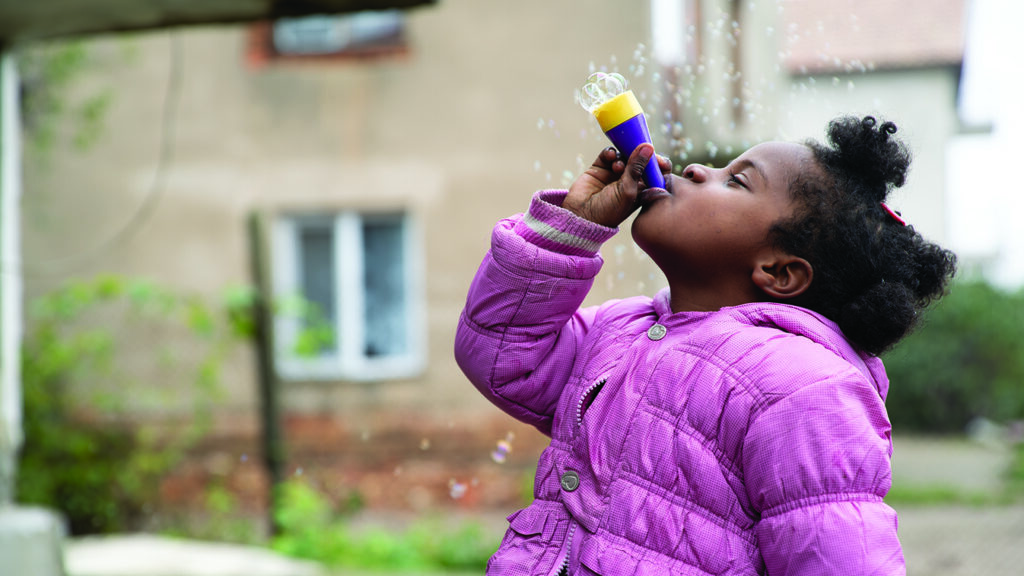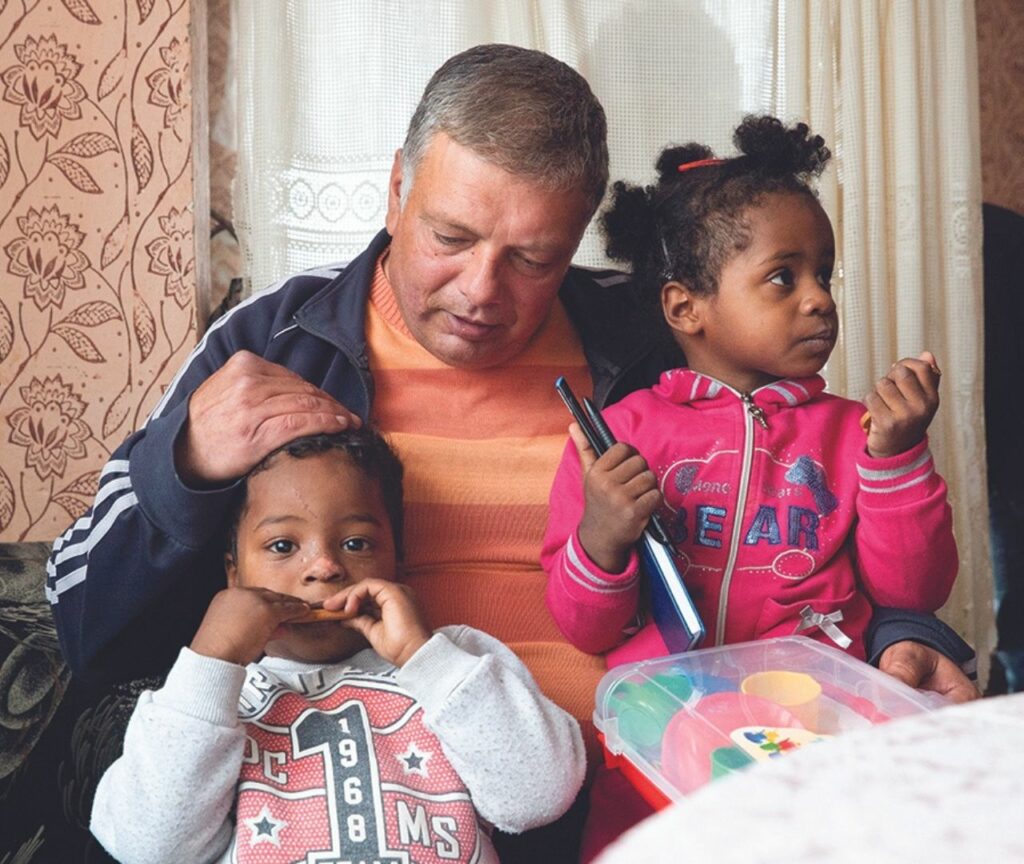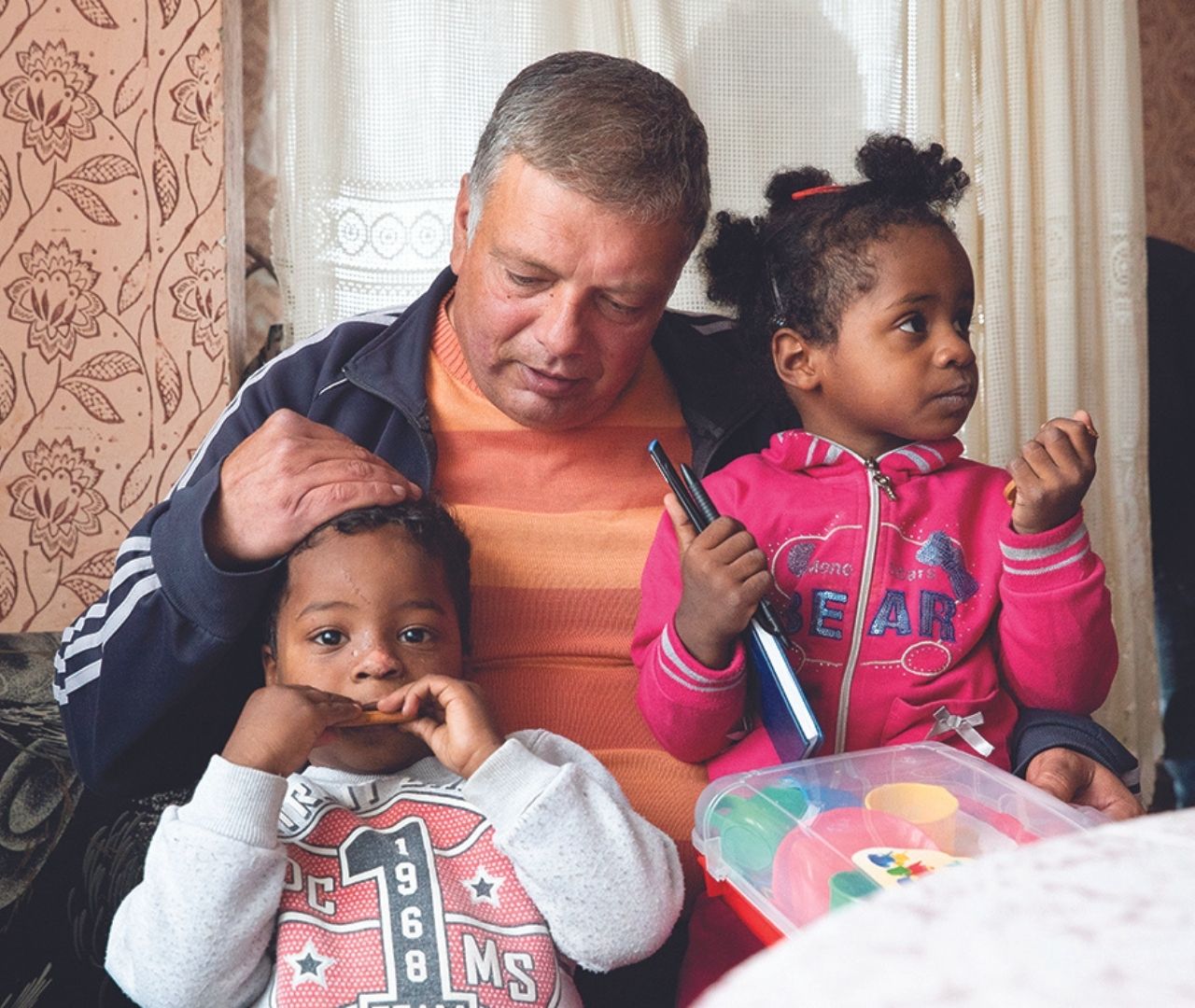Today Kaloyan and Maria are the centre of attention in the warm and happy home they share with their mum, their stepdad and their older brother and sister. But the twins spent the first five months of their lives, alone in an orphanage, because poor health meant their parents could not care for them without extra help.
By providing the practical and emotional support their parents needed, Hope and Homes for Children in Bulgaria made it possible for Kaloyan and Maria to be reunited with their family and grow-up where they belong; with the people who love them.
Four year-old twins Kaloyan are very much the centre of attention in the warm and happy home they share with their mum, Tanya, their stepdad Ivan and their older brother and sisters in a village in the North West of Bulgaria.
But the twins spent the first five months of their lives separated from their family in an orphanage after ill-health threatened to tear their family apart. Tanya became pregnant with the twins when she was working abroad to earn money for the family. Ivan agreed to stand by his wife, even though the babies were not his, and Kaloyan and Maria were born soon after Tanya returned home. It was a traumatic birth that ended in an emergency caesarean section and left Tanya suffering from post-natal depression. At the same time, Ivan was admitted to hospital to receive treatment for a heart condition.
Tanya felt completely alone. “I listened to the nurses in the hospital who behaved very badly. They said, “How can you even want to look at your black children? Better you give them up, right?”, she remembers.
Tanya felt completely alone. “I listened to the nurses in the hospital who behaved very badly.”
With no one to support her, Tanya felt she had no choice and made the heart-breaking decision to leave Kaloyan and Maria in an orphanage.
“I cried constantly when I signed to give them up because I grew up without a mother or a father. They left me very young, in a home and I just didn’t want my children to be the way I was.”

She returned home to Ivan and their older children but could not come to terms with losing the twins.
“I neither ate nor slept peacefully, just wondering how my kids were. How are they in this orphanage without me?”, she explains. Tanya was desperate to find a way to be reunited with her babies. And Ivan decided to support her decision. Even though everyone in their small rural community would know they were not his biological children, even though he was well aware of the prejudice they would face, he was determined to make their family whole again.
“I neither ate nor slept peacefully, just wondering how my kids were. How are they in this orphanage without me?”
It has been tough fight to overcome all the practical, bureaucratic and legal hurdles that have stood in their way—both to bring the twins home and to care for them ever since but our team in Bulgaria has been beside them all the way.

Social worker, Margarita Andreevksa, co-ordinates support for children in families in the area where they live. She ensured that Kaloyan and Maria’s family had all the practical and emotional support they needed to bring the twins home and be able to care for them for good. This included paying for transport for Tanya and Ivan to visit the twins in the institution and rebuild their bond with their babies; help with red tape to receive the extra social support the family is eligible to claim for the children; arranging and attending specialist appointments with Tanya to help her recover fully from the birth of the twins and protect herself from future unwanted pregnancy; securing the medicines that Ivan needs to manage his heart condition; and providing food, baby essentials, fuel for heating and extra clothes for all the children in the immediate months after the twins returned from the orphanage.
“Social worker, Margarita Andreevksa, co-ordinates support for children in families in the area where they live. She ensured that Kaloyan and Maria’s family had all the practical and emotional support they needed to bring the twins home and be able to care for them for good.”
Five months after they were born, Maria Andreevska went with Tanya to bring the twins home from the orphanage and in the months that followed she helped to arrange and attended their medical appointments to make sure they have treatment when needed and all the vaccines they need to enroll at nursery. Today Kalyon and Maria are four years old and they are happy, sociable and energetic children. Like all children their age, they love their toys but especially picture books that make sounds. Because of his health issues, Ivan does most of the childcare while Tanya works as a street cleaner. They both take seasonal work like picking walnuts where they can. “Everything was just wall after wall, after wall, after wall,” Ivan says, “But here we are and we are still one.”
Support our work Every child deserves a family
Help us to make sure that every child has a loving, stable home.
